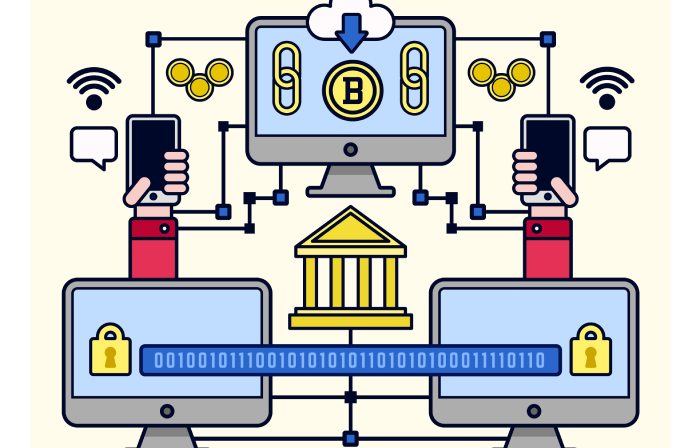MSPs have been on their toes over the last couple of years, capitalizing on every opportunity that comes along. With the new normal establishing itself after the pandemic, times have been shaky for most service providers. While an MSP might be focusing on the range of its managed service offerings, it’s easy to get busy with technologies. However, the secret to success and better user experience lies not in merely being active but in being productive.
It’s time for leading MSSPs to leverage the latest technologies based on their specific interests while offering all types of managed services to their clients. Ultimately, the end goal for every MSP would be to scale up their business to meet the market’s growing demands and deploy state-of-the-art technologies to enhance efficiency.
How Can MSPs Scale Up Their Businesses?
Before exploring a fresh set of technologies that hold immense potential for MSPs to enhance efficiency, here is a look at how an MSP partners can scale up its business.
- Investing in quality training and education pays off, considering the rising online threats for the clients. In 2017, the MSP market was valued at $155.91 billion, which is likely to touch $296.38 billion by 2021. It will help the clients realize the actual managed services meaning, which helps expand the scope of managed services on offer.
- Another way to scale up is including new services in the range of offerings based on the requirements of the times. For instance, one might include security for professionals working from home in the managed services offerings PPT.
- Yet another approach to scaling up the MSSP business is to cultivate the right customers. It will lead to an increase in the customer demands for the offerings, which opens a door and provides resources for increasing the scale of services.
- Lastly, an MSP also needs to accomplish more tasks with limited resources to leverage productivity.
Deploying The Latest Technologies To Enhance Efficiency
It is inevitable for an MSP to increase its efficiency to maintain the reputation among the clients and keep its market position firmly established. Leveraging state-of-the-art technologies is one of the best ways to realize the objective.
- Implementation Of Blockchain Support: Forward-thinking MSPs embrace IoT and blockchain support, two of the most disruptive mechanisms in the IT industry. An MSP can leverage blockchain technology for specifying the nature of the interaction between devices while monitoring their states. Eventually, it can work on security loopholes for its clients, which is always a crucial issue. Eventually, the integration of blockchain would bring about transparency in connected device ecosystems. For instance, smart contracts working on the blockchain can enhance IoT compliance for clients, improving the cost-efficiency of the technology.
- Using AI for Email Marketing: Organizations on digitized platforms are presently counting on different types of managed service providers for streamlining their email marketing strategies. Being an MSP, one needs to cultivate the right technologies to automate emails. In this regard, one can hardly overlook the potential of AI in email marketing. It can help the MSP offer a more excellent value to the clients. Here are the key benefits of automated email marketing campaigns.
- Efficient personalization and segmentation of emails
- Optimized subject lines for a greater reach
- Seamless channel optimization
- Automating the process of A/B testing
- Powerful retargeting mechanism
- Leveraging the automation process
- Faster email dispatches
- VoIP And Unified Communications: Offering VoIP and unified communications as a part of managed service offerings can help an MSP capitalize on opportunities. Some organizations are still dependent on the traditional PBX systems, and they would need remote capabilities. It implies that one can easily tap these markets and provide targeted offerings. Phone offerings based on IP are still in demand.
It will be rewarding for organizations to count on these systems, considering the new normal in the professional circuit. Notably, systems previously developed for offices wouldn’t support employees working from homes. As clients understand the managed services definition amidst the pandemic more clearly, MSPs can build on these opportunities. - Automating IT Service Alerting: Amidst growing competition, MSSPs need to automate the alerting services involving information technologies for their clients. It would cut off the mundane and repetitive tasks that eventually slash productivity on the MSP’s end. It will help orchestrate notifications among the teams and implies that technicians on call would immediately become alert of client issues. It will help them come up with instant solutions to the incidents that their clients encounter. Eventually, one can also integrate ITSA solutions with other cybersecurity tools, remote monitoring, and IT service management.
- Managing Cloud Complexity: Cloud technologies are here to stay. MSSPs need to try and manage cloud complexity for their clients. Besides leveraging analytics and modern applications, organizations seek the MSP’s services for digital transformation using cloud systems. Cloud migration services happen to be one of the prime managed services examples. Given that one has several options such as Google Cloud, Amazon Web Services, and other providers to choose from, it is advisable to manage this complexity prudently. It involves remote maintenance of IT services to mitigate high maintenance costs and inconvenience.
Migrating to cloud platforms would be beneficial from the scalability perspective as well. Eventually, the clients would be able to scale their organizations as per the market conditions. - Hyper-Converged Infrastructure: HCI (Hyper-Converged Infrastructure) encompasses computing, storage, and networking as a comprehensive and integrated system with intelligent software. Managed service offerings can include flexible blocks for building it, replacing legacy infrastructure with an all-encompassing one for the clients. It would enhance the efficiency of the business processes while leveraging the clients’ scalability and reducing the complexity of data centers.
Organizations are gradually becoming familiar with new managed service provider examples that offer technologies such as Hyper-Converged Infrastructure. As a result of realizing the priority of staying ahead, they would demand better performance, simplified management, and reduced time for marketing. It makes HCI technologies a necessity. As a leading MSP, one must collaborate with other ventures to set up HCI after comprehensively understanding the current market requirements.
Final Words
Amidst growing competition, MSPs would be looking forward to broadening their managed service offerings. In this regard, one may also consider rolling out infrastructure as a service (IaaS). Technologies are evolving fast, prompting MSSPs to embrace the right ones to enhance customer experience while uplifting the efficiency of their services. Deploying the technologies discussed in this post can improve the stature of the organization substantially.


